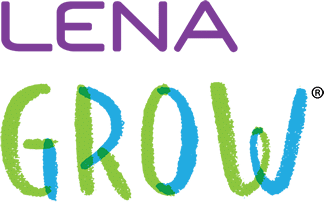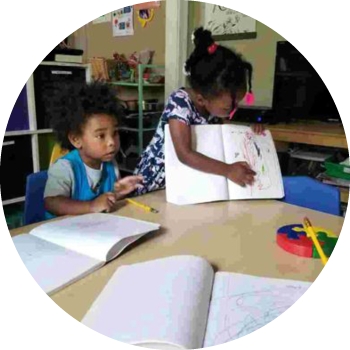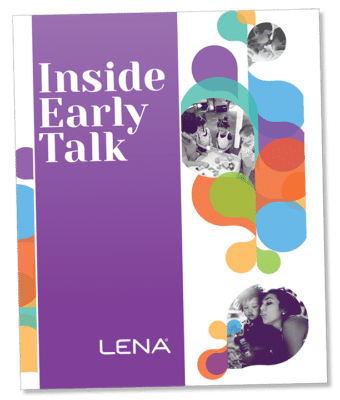LENA for Family Child Care
How LENA Grow supports FCCs
LENA Grow's practice-based approach to professional development helps FCC providers:
- Boost children's social-emotional skills.
- Improve their own professional outlook and job satisfaction.
- Accelerate children's language development.
- Accelerate their own skills at fostering optimal language environments.
- Reach the children who need the most help.
How LENA Grow supports FCCs
With the flexibility, cultural responsiveness, and small child-to-educator ratios they offer, family child care providers fill a critical need in early care and learning. However, in spite of their critical and growing importance, FCC providers are too often left out of traditional quality improvement initiatives. Professional development opportunities for FCC providers must factor their unique needs and honor the incredible work they are already doing.
LENA Grow is designed to make every interaction count in early childhood education.
A seamless fit into daily care routines
“It became clear that the fit of LENA Grow was perfect for us. Our values encourage us first to value infant toddler early care educators. This model says ‘you caregivers, what you’re already doing in your day, you’re doing it’ – we just want to put words and numbers around it and give it back to you in a way that’s readable.”
Putting relationships front and center
Responsive relationships are at the heart of high-quality care. FCC providers can use LENA Grow data not only to boost positive interactions with children, but also to engage with families. With LENA Grow, FCC providers receive:
- Individual child data: Particularly with the mixed child age ranges found in FCCs, it’s helpful for caregivers to be able to see objectively how much they are engaging with each child. For example, a back-and-forth interaction with a preschooler may require much less wait time than the same interaction with an infant. LENA Grow data gives providers the tools to reflect on and more deeply individualize their response to each child.
- Peer engagement: Working in a home care setting can be isolating. Implementing LENA Grow with multiple providers as a cohort offers an opportunity to help them engage in the larger FCC community. This may mean offering virtual group coaching sessions, or bringing providers together for the Orientation session at the beginning of the program and the Celebration session at the end.
- Flexibility: LENA Grow coaching can be delivered virtually or in person, making it easier to schedule sessions at a time that is convenient for the provider. Coaching materials are available in both Spanish and English.
- Professional empowerment: Putting objective data directly into the hands of providers helps them set their own personal goals, increasing their sense of professional efficacy. It also gives them a tool to use to engage with families, both to point out the brain-building interactions happening with their children throughout the day as well as to highlight how families can support and reinforce those interactions at home.
“In this climate, all of the things that make family child care so special are particularly important. Families take comfort knowing that their children, from infancy to school age, are together in a small, warm, familial home setting that reflects culture and values that mirror their own.”
- Jessica Sager, CEO of All Our Kin
Read the full Q&A with Jessica Sager.
How do FCC language environments compare?
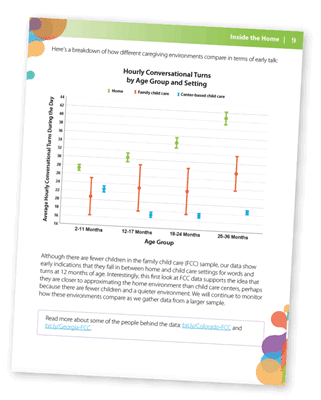
According to Inside Early Talk, one of the latest reports from LENA’s research team, a wide gap exists between the number of conversational turns children experience in home settings and center-based child care settings. Interestingly, FCC environments fall in between home and center-based settings.
Based on updated data from over 24,000 children (see below), children in FCC settings experience fewer conversational turns than children in Head Start classrooms and more conversational turns than children in non-Head Start center-based settings.
The opportunity is there. Amplifying the importance of serve-and-return interactions in FCC settings can make an enormous impact on children's short- and long-term outcomes.
Average Conversational Turn Rates by Age Group and Setting
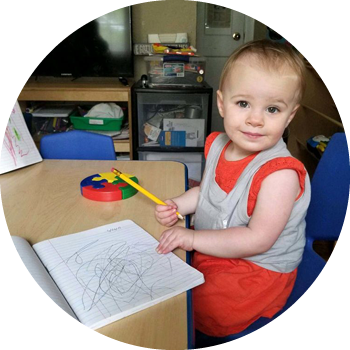
“I showed the reports to each individual child’s parents and said, ‘This is what I’m doing in school, and I need you to help me with this, too.’ I talked to them and explained how the data works and how to talk to a child. I explained how you can respond, even if you don’t know what they’re saying.”
- Pamela Robinson, an FCC provider in Georgia
Read more about Ms. Robinson’s experience with LENA Grow.
Webinar — Integrating Professional Development for Family Child Care Providers into Statewide Systems
The state of Colorado has successfully integrated LENA Grow into their state Professional Development Information System (PDIS) for supporting FCC providers, giving credit to coaches and providers for the hours they participate in LENA Grow.
In this webinar, the project's state and county leads expand on such topics as:
- How the initiative got funded and how it launched.
- The process of expanding statewide.
- Outcomes of the program so far, including valuable data insights into informal care settings.




